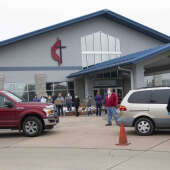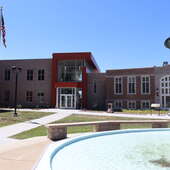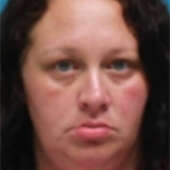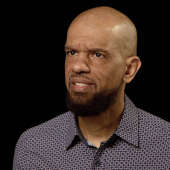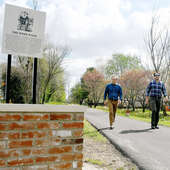Mentorship 101: A conversation with Justin Pobst and Wyky Jean
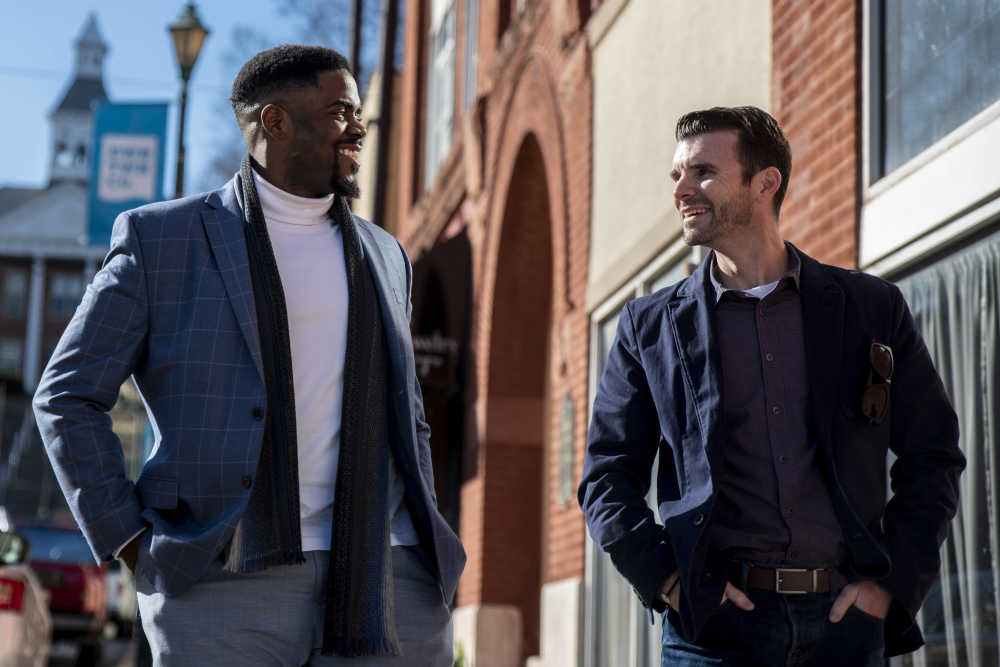
Having a mentor in the business world can help young professionals navigate new situations, make connections within the community and have a sounding board for their ideas and questions.
Being a mentor has its benefits, too: it's a chance to pass on the skills and lessons you've gained throughout your career and look at topics with fresh perspective, while helping a young professional better the community through their own gifts and skills.
Justin Pobst, Southeast Missouri State University professor of entrepreneurship and finance and staff pastor at Cape First Church, and Wyky Jean, co-founder of the Honorable Young Men's Club and co-owner of Chosen Fitness, have known each other since 2012, when Wyky was in Justin's entrepreneurship class at SEMO. They connected as people during that semester, talking with each other about their similar interests, and then were re-connected through a mutual friend after Wyky graduated. Seven years later, their mentor/mentee relationship has grown into a friendship and father/son relationship, in which they talk about not only business and career development, but also about life and faith.
A typical meeting between the two, Wyky says, usually involves eating at a restaurant or hanging out at the Pobsts' home. They talk about their personal lives and the NBA world, and then "put on their business/entrepreneurial hats and dive in" to talking business.
"Everything from Quickbooks to shooting hoops," Wyky says of the topics their conversations and meetings span.
"Wyky is like part of our family," Justin adds. "I don't even think about it like a mentorship. He's like my son."
Here are a few of their tips for how to find and develop a mentor/mentee relationship in the professional world.
This conversation has been edited for length, content and flow.
How has your mentor/mentee relationship helped each of you? What have you learned from each other?
Justin: Wyky has taught me so much, and I think in a mentor/mentee relationship sometimes we think the person getting mentored is the person that gets everything. Wyky gives me an opportunity to give something that someone else gave to me. Someone poured into me and was a floor for me, and all I want to be is a floor for somebody else. For someone to trust me to give them what little wisdom I have, it means a lot to me. To be able to take what I've received and be able to give it to someone else and see it actually help them in their life; you can't put a price tag on that.
Wyky: When people are unselfish with their gift and look to help others, they are truly spreading love. You can empower someone, and help change the trajectory of their life and even the lives of those closest to them with your gift that you were blessed with.
What my mentees receive from me is in some cases a by-product of the relationship that Justin and I have, a balance of enjoying great times and great memories. We meet up at the gym to shoot some hoops then a few days later get in the classroom when it's time to get down to business. That is just one example. Balance is a huge factor in the relationship with mentee and mentor in the Honorable Young Men's Club. They see us in business casual uniforms taking care of busy schedules, and they see us in the gym getting after it, watching us compete. They get the full spectrum. With Justin, he's opened his home to me, plus I get to see him on stage speaking and also in business mode.
What would you say to other people in the community who are either looking for a mentor or who could potentially be a mentor?
Wyky: For the mentees, one thing that's very important is your willingness to learn, your willingness to change. Justin doesn't do any homework for me. He inspires me, he tells me what I need to do and then I go do it. So it's like I have to be able to shut up and listen, be present and then be able to take action on whatever it is that I'm trying to accomplish, and be willing to get constructive criticism at the end. So as a mentee, you have to be coachable, you have to be teachable, you've gotta be present, and it's very, very important, because that determines how strong your relationship is with your mentor and how successful you will be in the long run. And find somebody that likes the same things as you.
Justin: I think listening is so key on both sides of the coin. If you're being mentored, listen to learn. Listen for wisdom. Listen for things you can practically put into your walk. And on the other side [as a mentor], listen. When I'm talking to Wyky, I'm listening beyond what he's saying. I start to figure [it] out, ask enough questions, listen; we're going to get down to the root of it. [It's about] being patient because I value the conversations.
Is there anything else that would be beneficial for readers to know about seeking or being a mentor or mentee?
Justin: I would say for someone who is thinking, "Maybe I want a mentor," you've got to initiate it. Have some initiative and seek some people out. There's people around. There's people there that would be honored if you asked them. And maybe you have to ask twice, or three times. Just keep asking, and you'll get somebody, I promise. And the mentor side, I would say, open your schedule up. You don't understand the blessing you'll get by just pouring into somebody else. It'll change your life; you'll look at the world differently. I would encourage both to have initiative, both of you to seek it out. Or at least be open if somebody's coming to you, and just do it.
Wyky: If we don't invest in the future leaders of this community, there will be no community. so who's going to be able to keep these buildings functioning in the business world, who's going to be able to keep the neighborhoods safe, who's going to be able to educate our kids in the future? So we have to, have to, have to invest in the future leaders. And you've got to have fun doing it.













